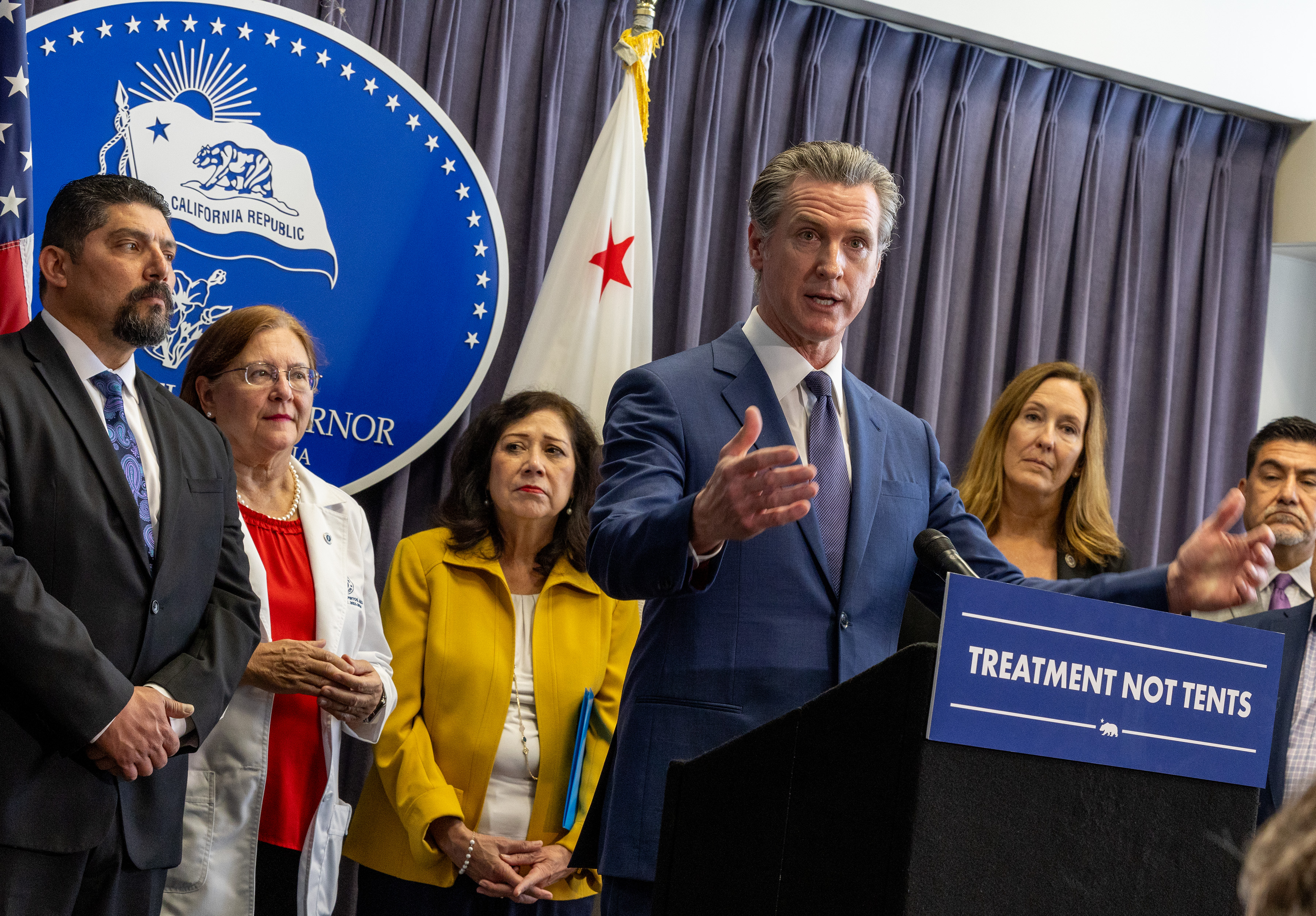Edward Snowden told a crowd at Fusion’s “Real Future Fair” that voters shouldn’t put too much faith in elected officials, and instead look to technology and science to bring positive change to the world.
Snowden appeared from Russia via a BeamBot, a remote-controlled presentation robot with a screen, that scooted around the stage of the lecture hall at at the Oakland Museum of California on Tuesday.
“If you want to build a better future, you’re going to have to do it yourself. Politics will take us only so far. And if history is any guide, they are the least effective means of seeing change we want to see,” he said.
Fusion’s Real Future editor, Kashmir Hill, interviewed the former contractor who leaked hundreds of thousands of pages of international intelligence documents and records from the National Security Administration in 2013. Snowden, 33, has been called a hero, a traitor, a whistleblower and a dissident. The leaked information was published by respected news organizations and sparked a discussion over privacy and national security.
Asked about the 2016 elections and his predictions for individual privacy under President-elect Donald Trump, he said that the American people put too much faith in elected officials, and that’s a mistake.
“One of the most challenging issues we had during the election was that nobody wanted to have a conversation about policy, the future, even about the presidency. Instead, we were dragged into this conversation about personalities -- which of these two bad options was more palatable?” he said. “Elections matter. Votes matter. But they’re never enough. We shouldn’t be thrust into a position where every four years we’re asked to hope for a Barack Obama or fear a Donald Trump.”
He called out President Obama for not following through on his promises to end warrantless wiretapping, close the Guantanamo Bay detention camp, and investigate the George W. Bush administration. He also noted that more government sources and journalists have been prosecuted under Obama’s administration than any other previous president
Local
“When it comes to fighting cancer, healing aids, ameliorating poverty -- these solutions aren’t coming from government,” he said.
He said every person in the audience probably had a cell phone which records and sends their location and communications.
“If this is going to empower us rather than disempower us, we’re going to need science and technology rather than law. At the end of the day, law is only letters on the page. They’re not going to jump up and protect your rights,” he said.
One advantage that technology has over laws is that technology knows no jurisdiction when properly implemented, he said.
The U.S. Department of Justice has charged Snowden under American laws against espionage and theft from the government. He is currently living in exile at an undisclosed location in Russia.
“If we get it right, if we can enforce a right to privacy through technology and other countries will realize that they must have access to these technologies in order to thrive,” he said. “To me, that to me is a more reliable plan.”
Snowden was also asked about how much political discourse played out on Facebook, Twitter and other social networks this election, and how those corporations might have influenced the election, on purpose or by accident.
The challenge, he said was the lack of competition.
“There seems to be no alternative to the larger services. Because of this network effect, because the first mover advantage. When you get a Google or a Facebook or Twitter in place, they never seem to leave,” he said.
That centralization of power in a single point poses a danger, he said. One solution would be a federation of thousands of connected social media platforms, so one could be filtered, scrutinized, or abandoned if it wasn’t working.
Snowden blamed Silicon Valley’s desire for massive, world-eating services that take over. He warned that in the past, monopolies grew quietly, achieved a prominent platform, operated carefully and rationally to maximize profits. Then, once they got big and unstoppable, they became less careful and “more muscular,” trampling not just customers but paradigms, he said.
Tech executives are “asking us to accept a status quo in which we set aside competition in favor of scale. But we should be cautious,” he said. “To have one company that’s so powerful as to reshape the way we think -- I don’t think I have to describe how dangerous that is.”
Snowden answered questions from the audience. One attendee asked him how to protect individual privacy while working for change.
“The first thing is to care, and signal that you care. Be that person at Thanksgiving who brings it up. Don’t ruin Thanksgiving over it,” he said. “But really the most important thing is to make your voice heard.”
He suggested using apps like Signal and donating to organizations like the American Civil Liberties Union, the Electronic Frontier Foundation, and the Freedom of the Press Foundation which work to educate politicians, reform laws, and work through the courts “to get that better brighter more free world.”
The rapid pace of technology, from cell phones to augmented reality means no one can predict whether a new kind of tech is a blessing or a curse, he said.
“What we can say is that we are living in a moment of possibility that will allow us to reshape not only the way we relate to technology but the way we relate to each other.”[[401346116, C]]
The second annual Real Future Fair featured speakers on police reform, the future of work, diversity in tech, and internet harassment. After last week's election, the event organizers decided to give away free tickets.
Snowden's next stop on the virtual Bay Area lecture circuit is in Febrary at City Arts and Lectures.



